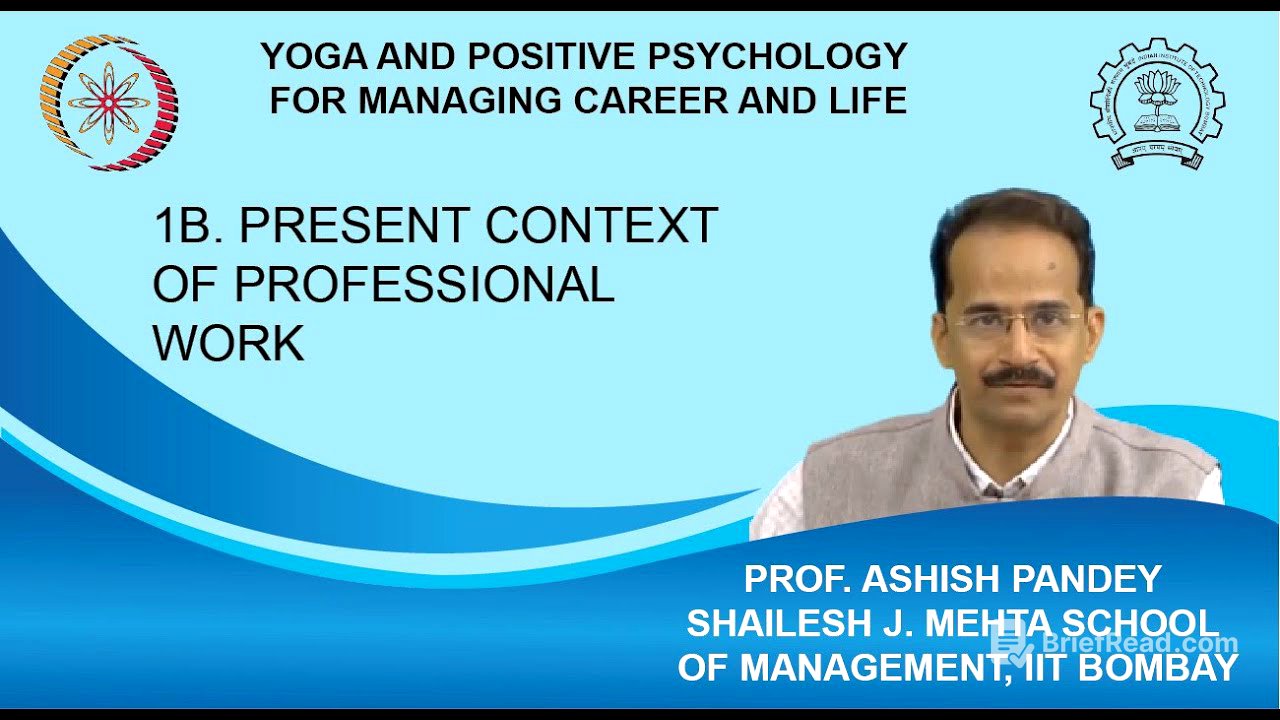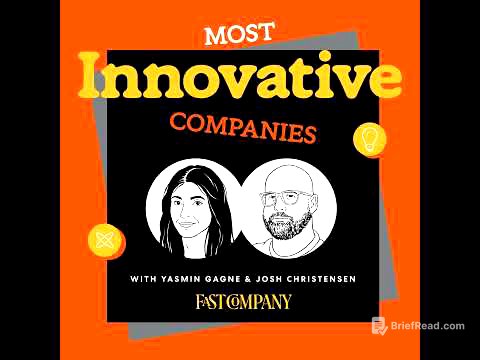TLDR;
The video discusses the increasing importance of self-management in today's changing economy. It highlights the shift from a commodity-based market to an experience and transformation economy, and the rise of the gig economy. Key takeaways include the need for continuous innovation, learning, and self-management for knowledge and gig workers, as well as the emphasis on quality over quantity in productivity.
- The economy is shifting from commodity to experience and transformation.
- Gig economy is rising, with more workers as independent professionals.
- Continuous innovation, learning, and self-management are crucial for success.
- Quality is now a basic requirement, with productivity focused on quality over quantity.
Changing Professional Lives [1:00]
The speaker explains how professional lives are evolving due to changing business models and customer interactions. The market has transitioned from a commodity market, where producing useful goods at scale was key, to one focused on specialised goods and services. This evolution continued from goods to services, where providing strong service alongside products became essential. Now, businesses are focused on providing the best experience across all customer touchpoints, from initial contact to product disposal.
Transformation Economy [8:08]
The discussion moves to the transformation economy, where customers are actively involved in the creation of products. Examples like Nike's customisable shoes and online tutorials are mentioned, highlighting individualised treatment. Platforms like Facebook, Twitter, Airbnb and Ola exemplify this, where customers contribute content and participate in value creation. These changes are driven by technology and occur on a global scale, redefining the professional context.
Gig Economy [9:37]
The video introduces the gig economy, characterised by a large number of service providers who are not full-time employees but rather independent professionals. These workers connect with clients through platforms, which facilitate transactions. Examples include Ola and Uber drivers, software developers, content writers, and even farmers. In this economy, continuous learning, relearning, and unlearning are essential, along with identifying a niche and satisfying customers to secure future opportunities.
Knowledge and Gig Workers [11:48]
The shift towards an experience and transformation economy, combined with the gig economy, has created a large pool of knowledge and gig workers. These workers require continuous innovation, learning, and self-management. Innovation is now integrated into the job, and learning involves unlearning old methods. Self-management is crucial, as these workers operate as entrepreneurs, managing their time, productivity, and customer interactions independently.
Productivity Management [13:58]
In the current environment, quality has become a basic requirement rather than a differentiator. Productivity management is now focused on quality over quantity. Good ratings and positive feedback are essential for securing future business opportunities. Even if fewer services are offered, maintaining high quality ensures better chances of repeat business, while compromising on quality can significantly reduce future opportunities.









